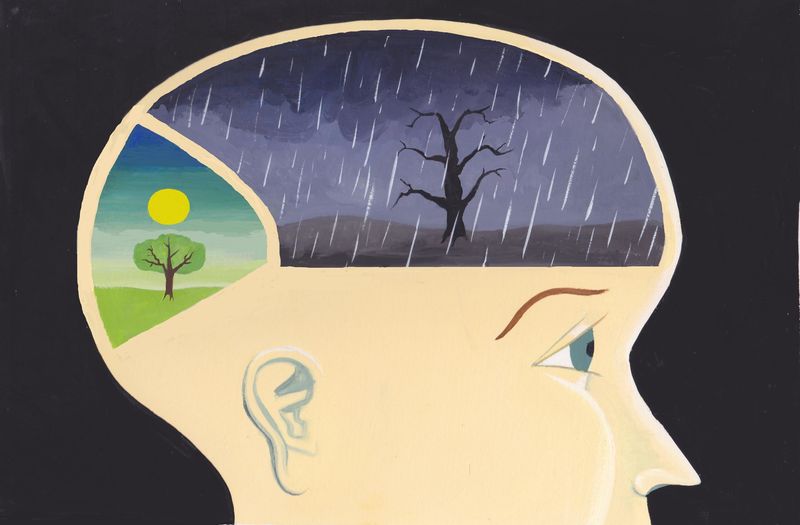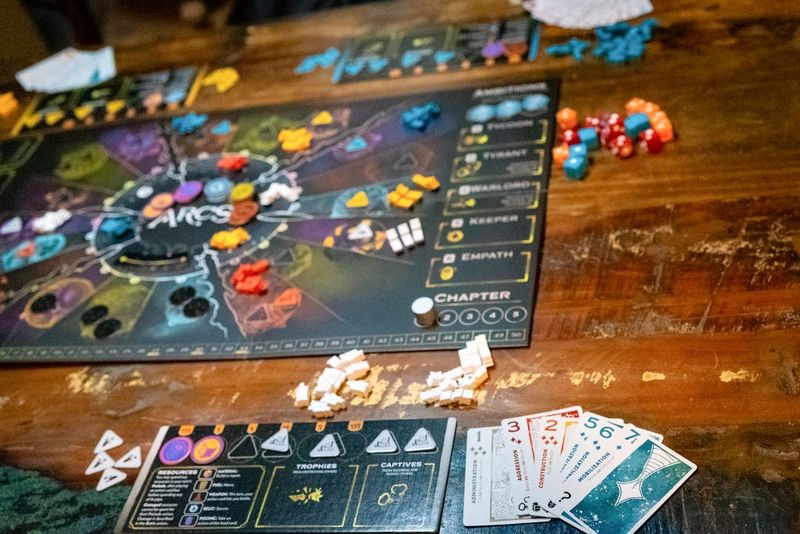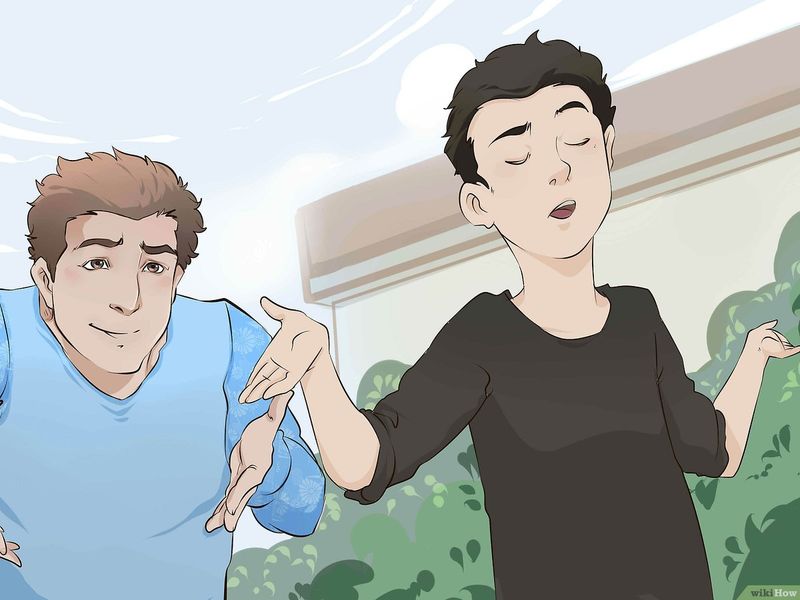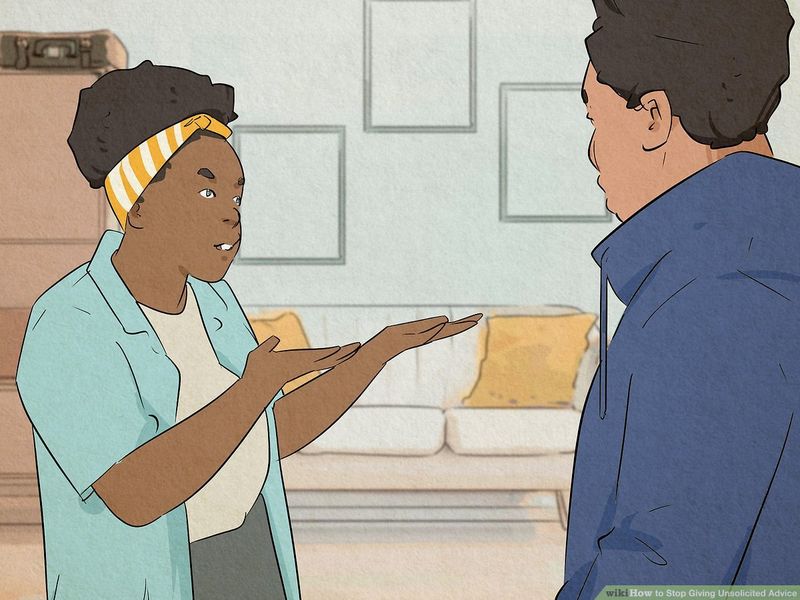19 Behaviors That Make You Hard To Be Friends With
You know that moment—the one where you replay a conversation in your head and wonder if it’s you? Trust me, I’ve been there too. If you’re honest, friendship isn’t just about finding your people. Sometimes, it’s about facing the stuff that pushes them away.
This isn’t about shame or blame. It’s about the small habits and hidden patterns that can quietly make you a hard person to stick around. Consider this a late-night, real-talk list—the kind that stings a little but helps a lot.
Ready? Let’s get into the stuff nobody wants to admit but everyone’s felt.
1. Constant Negativity

Ever walked into a room and felt like the air got heavier? That’s what it’s like being around someone who always points out what’s wrong. It doesn’t matter if good news pops up—there’s always a catch, a problem, or a catastrophe waiting to be found.
Eventually, even close friends stop sharing happy things because it’s easier than hearing the next complaint. No, you don’t have to be fake or force positivity. But when every conversation circles back to why life is terrible, people feel tired and helpless around you.
The truth is, this isn’t just about venting. It’s about making people feel like hope is a lie. When you’re the person who can’t spot the light in anything, friends will start looking for their sunshine somewhere else.
2. Lack of Active Listening

Have you ever noticed how it feels when you’re talking, but the other person’s eyes glaze over? Or worse, they’re just waiting for their turn to speak. That’s what happens when you don’t really listen.
Being present isn’t about nodding at the right time. Real listening means you care about what your friend wants to say, not just what you want to respond with. When you dominate every conversation, it’s less of a friendship, more of a monologue with an audience of one.
People want to be heard, not managed. If your friends leave talks with you feeling invisible, they’ll stop sharing real things. And slowly, they’ll stop coming around as often. It’s not personal—it’s survival.
3. Overuse of Electronics

Picture this: You’re together in person, but it feels like you’re still miles apart. That’s what happens when your phone becomes your main companion, not your actual friends. You scroll, you answer texts, you check notifications—while real people sit right across from you.
Nobody wants to fight a screen for attention. It’s not just about missing a few words; it’s about missing whole moments that build connection. Over time, people notice when they’re not as important as the digital world in your palm.
It’s easy to tell yourself you’re just multitasking. But to the people around you, it reads as “I’m not really here with you.” And if that’s the message you send enough times, people will start making plans without inviting you.
4. Being Overly Competitive

Some competition can spark fun, but when winning is everything, you turn friends into opponents. Ever noticed how a simple game or story becomes a battle to outdo everyone? That’s exhausting.
It’s not just about games; it’s turning every conversation into “who had it harder” or “who did it better.” Instead of celebrating with you, friends start bracing for the next showdown. It stops being about connection and starts to feel like a scoreboard.
When every interaction is a contest, people get tired of losing—or tired of feeling like they have to prove themselves. Eventually, they’ll stop playing altogether. And you’re left wondering why nobody wants to keep score with you.
5. Lack of Empathy

Empathy is the glue of friendship. When you just don’t get—or don’t care about—what someone else feels, the cracks start to show. It’s not always about big moments. Sometimes, it’s small dismissals: “You’re overreacting,” or “That’s not a big deal.”
Without empathy, friends feel like their feelings are an inconvenience. Their pain becomes a punchline, or worse, ignored. You don’t have to feel everything someone else does, but you do have to honor it.
Trust disappears when people feel consistently misunderstood or brushed aside. And so does the closeness. You might not even notice until the calls and texts just stop coming.
6. Not Respecting Boundaries

Some people think closeness means no boundaries. But the fastest way to lose a friend is to trample over their limits—whether it’s showing up unannounced or prying into things they’re not ready to share.
Respect isn’t about distance, it’s about trust. Ignoring boundaries can make someone feel exposed, unsafe, or outright disrespected. Even the most forgiving friend has a breaking point.
If you notice people pulling back or being vague, it might not be about them being “distant.” It could be your inability to respect the lines they draw. Friendship isn’t about access—it’s about mutual safety.
7. Inflexibility

Plans change. Life shifts. But if every deviation from your script feels like a personal attack, you might be the hardest person to make plans with. Refusing to compromise isn’t a strength—it’s stubbornness dressed up as principle.
Friends want to feel their needs matter, too. When you dig in your heels over every detail, it stops being about what’s best for the group and starts being about your control. That gets old, fast.
People won’t want to negotiate with a brick wall every time. After a while, they’ll just stop inviting you to anything that isn’t exactly your way.
8. Excessive Complaining

We all need to vent sometimes. But when every hangout turns into a gripe session, friendships wither. You might not notice at first—the relief of letting it out feels real—but to your friends, it’s like being caught in a thunderstorm with no umbrella.
There’s a difference between sharing your struggles and making complaints the centerpiece of every conversation. Friends want to help, but they can’t solve everything. When you never give the other side of the story—or any space for hope or joy—people start checking out.
Over time, it’s easier for your friends to avoid the storm altogether. And the saddest part is, you don’t even notice the sun went away until you’re left talking to yourself.
9. Lack of Personal Hygiene

No one wants to admit it, but basic hygiene shapes first impressions and lasting comfort. If you regularly show up smelling off, wearing unwashed clothes, or with visible neglect, it’s hard for people to focus on anything else.
Friends usually don’t know how to bring it up—they fear hurting your feelings or seeming shallow. So instead, they slowly hang out less or choose public places where distance is easier. It’s not just about appearance. It’s about how neglect can make others feel uneasy or even disrespected.
Maintaining hygiene isn’t about being flashy or perfect. It’s about showing you value yourself and the people around you. When you stop caring, others stop feeling safe to get close.
10. Being Unreliable

Did you ever had plans fall apart because someone just didn’t show up? Or promised to help, then ghosted? That’s what it’s like being friends with someone unreliable. At first, people forgive. Then, they start preparing for disappointment.
Reliability isn’t about perfection—it’s about trust. When you drop the ball too often, friends feel like they don’t matter. Their excitement turns to caution. They stop depending on you, then stop inviting you at all.
Being the one who can’t be counted on is a lonely way to live. Eventually, it’s not just plans you’re missing. It’s the chance to really matter in someone’s life.
11. Habitual One-Upping

Confession time: nobody loves the friend who always has a story to top yours. It starts small—someone shares a rough day, and suddenly, your disaster is ten times worse. Or someone’s good news gets met with your even bigger achievement.
It feels like conversation, but it’s actually competition. People want to share their moments, not get stuck in a never-ending contest. Eventually, they’ll stop opening up, and the table turns quiet whenever you speak.
You don’t always have to relate by outdoing. Sometimes, being quiet and letting someone else shine is the only thing that will make them feel close to you.
12. Being Judgemental

Did you ever felt smaller after sharing something with a friend? That’s what happens when judgement slips into every conversation. It might be a look, a snarky comment, or a backhanded compliment—whatever form it takes, it stings.
Judgment doesn’t push people to grow; it makes them hide. Instead of risking your criticism, friends start keeping secrets. The walls go up, and real connection dies off.
It’s easy to think you’re just being honest or “helpful.” But if your words leave people feeling ashamed or not good enough, you’re not building up your friends, you’re wearing them down.
13. Never Apologizing

You know that tight feeling when someone’s wronged you, but they just can’t say sorry? Some people act like apologies are a sign of weakness. The truth is, refusing to apologize is the fastest way to build resentment.
Mistakes happen to everyone. But when you can’t admit yours, friends feel trapped under the weight of unspoken tension. They start tiptoeing around your ego, rather than relaxing in your company.
It’s not about being perfect. It’s about showing you care enough to make things right. And if you never do, people will eventually find warmth and accountability somewhere else.
14. Flakiness

Some people are known for being spontaneous. But if you’re the one who cancels last minute or changes plans on a whim, friends start making backup plans—without you. Flakiness might sound harmless, but it’s a slow poison for trust.
It’s not just about missing events. It’s about the message: “I’ll show up if nothing better comes along.” Eventually, friends read that loud and clear. The invitations shrink, and you’re left watching life from the sidelines.
Being dependable doesn’t mean you never change your mind. It means you value people’s time as much as your own. That’s the difference between being wanted and being remembered as a good time that never happened.
15. Making Everything About You

We all know someone who can turn any story—happy, sad, or mundane—into a spotlight on themselves. Suddenly it’s not about your breakup, job win, or family drama. It’s about their bigger, flashier version.
It’s exhausting to feel like a side character in your own life, especially with someone who’s supposed to be on your team. People drift off or look bored when you speak. Friends eventually stop sharing when they know the conversation will just boomerang back.
It might be time to ask: do I let the story be about them, or do I always take the lead role?
16. Refusing to Celebrate Others

Ever had a big win, only to feel the air go cold because your friend can’t share your joy? It’s subtle—maybe a forced smile or a quick subject change. But it lands hard.
When someone can’t genuinely celebrate your happiness, it’s lonely in a way that’s hard to explain. It’s not about jealousy—it’s about feeling unsafe to shine. Over time, you stop sharing your good news, and the friendship shrinks down to only the bad stuff.
A real friend stands in your light, not your shadow. If you can’t be happy for the people you care about, you’ll find yourself clapping alone.
17. Holding Grudges

Nobody’s perfect. But if you keep score of every slight, real or imagined, you turn friendship into a minefield. Friends mess up—it’s part of the deal. When you hang on to every mistake, people stop feeling safe around you.
Forgiveness isn’t weakness, and forgetting doesn’t mean you weren’t hurt. But holding grudges makes every interaction risky. People start measuring every word, every action, just to avoid your silent punishments.
Soon, friends will stop trying to make it right and just try to escape. And what’s left isn’t friendship—it’s a cold war with polite smiles.
18. Always Giving Unsolicited Advice

Advice is great—when you actually want it. But when every conversation becomes a lecture or a fix-it session, it gets old fast. Some people genuinely want to help, but they forget what their friend actually asked for: to be heard.
This can feel like you’re not trusted to handle your own life. Friends start sharing less, or lying about the details, just to avoid another round of “You should…” It shuts the vibe down.
The next time you want to help, ask: “Do you want advice, or do you just want to vent?” Occasionally, being a good friend means just keeping your mouth shut and listening.
19. Emotional Unavailability

Emotional walls might keep you safe, but they also keep everyone else out. This isn’t about being cold—it’s about never letting people see the real, vulnerable you.
Friends want to know more than your opinions or the surface-level stuff. They want to see that you care, that you can be moved. When you never open up, or always joke to deflect, people start feeling alone even when you’re together.
It’s not about spilling every secret. It’s about letting people in, even just a little. Without that, friendships feel like shallow pools—nice to look at, but impossible to dive into.







